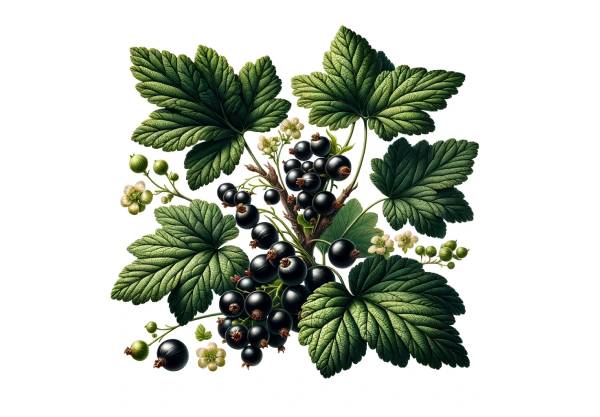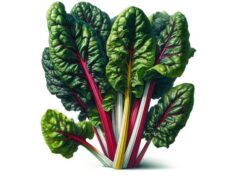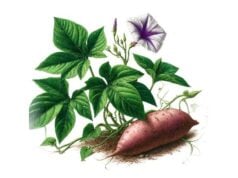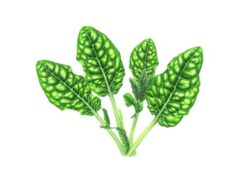
Introduction to Blackcurrant
Ribes nigrum, or blackcurrant, is a small, dark purple berry native to Europe and parts of Asia. This fruit has been revered for centuries for its exceptional health benefits and culinary versatility. Blackcurrant has long been used in traditional medicine to treat a variety of ailments due to its high nutrient density and potent bioactive compounds. Due to the scarcity of citrus fruits during World War II, blackcurrants became a critical source of vitamin C for the population.
Today, blackcurrant is valued not only for its nutritional value, but also for its potential therapeutic benefits. Berries are consumed in a variety of ways, including fresh, dried, juiced, and as part of supplements. Blackcurrants’ deep, tangy flavor makes them a popular ingredient in jams, syrups, and desserts, as well as health products designed to improve overall well-being.
Blackcurrant’s importance in maintaining overall health is becoming more widely recognized in modern nutrition science. Its high vitamin, mineral, and antioxidant content qualifies it as a superfood with numerous health benefits, including immune support, cardiovascular health, and anti-inflammatory properties. Recent research has also highlighted blackcurrant’s role in improving eye health, owing to its unique composition of nutrients and phytochemicals that promote visual function and protect against age-related eye conditions.
Nutritional Profile of Black Currant
Blackcurrant is a nutritional powerhouse, containing essential vitamins, minerals, and bioactive compounds that promote eye health and overall well-being. Here’s a detailed breakdown of its main nutrients and active compounds.
- Vitamin C: Blackcurrants are extremely high in vitamin C, with one serving providing more than 300% of the daily recommended amount. Vitamin C is a powerful antioxidant that protects the eyes from oxidative stress and promotes the health of the eyes’ blood vessels, lowering the risk of cataracts and macular degeneration.
- Anthocyanins are the pigments that give blackcurrants their deep purple color. Anthocyanins are strong antioxidants that protect retinal cells from free radical damage. They also improve night vision and overall visual acuity by increasing blood flow to retinal structures.
- Vitamin A: Vitamin A is necessary for maintaining healthy vision because it helps form the protein rhodopsin, which the eyes require to see in low light conditions. Blackcurrants contain beta-carotene, a precursor to vitamin A, which helps prevent night blindness and improves eye surface health.
- Vitamin E: This fat-soluble antioxidant prevents eye cell damage and slows the progression of age-related macular degeneration (AMD). Blackcurrants contain a high level of vitamin E, which helps to maintain eye health.
- Gamma-Linolenic Acid (GLA): Black currant seed oil is high in GLA, an omega-6 fatty acid with anti-inflammatory properties. GLA alleviates dry eye symptoms and maintains moisture balance in the eyes.
- Potassium: Potassium is necessary for fluid balance in the body and helps maintain healthy intraocular pressure, preventing conditions such as glaucoma. Blackcurrants contain a significant amount of potassium, which benefits overall eye health.
- Dietary Fiber: While not directly related to eye health, blackcurrants’ high fiber content helps to maintain a healthy digestive system, which indirectly supports nutrient absorption, which is necessary for overall health, including eye health.
Blackcurrant: Vision Health Advantages
Blackcurrants provide a multifaceted approach to improving eye health due to their high vitamin, antioxidant, and fatty acid content. Below, we will look at the specific ways in which blackcurrants benefit your eyes, backed up by scientific evidence and expert insights.
1. Protection From Oxidative Stress
Oxidative stress contributes significantly to the degeneration of eye tissues, resulting in conditions such as cataracts and age-related macular degeneration (AMD). Blackcurrants contain high levels of vitamin C and anthocyanins, which act as powerful antioxidants to neutralize free radicals. Vitamin C promotes the regeneration of other antioxidants, such as vitamin E, which further protects the eyes from oxidative damage.
2. Enhanced Night Vision
Anthocyanins found in blackcurrants have been shown to improve night vision by stimulating the regeneration of rhodopsin, a pigment in the retina responsible for low-light vision. According to studies, anthocyanins can significantly improve visual function in dark environments, making blackcurrants especially beneficial for people with poor night vision.
3. Prevention and Management of Glaucoma
Glaucoma is characterized by elevated intraocular pressure, which damages the optic nerve and may result in vision loss. Blackcurrants contain potassium, which helps regulate fluid balance and maintain normal intraocular pressure. Furthermore, the anti-inflammatory properties of GLA in blackcurrant seed oil can help reduce inflammation in the eyes, aiding in the prevention and treatment of glaucoma.
4. Reduction of Dry Eye Symptoms
Dry eye syndrome is a common condition in which the eyes produce insufficient tears or the tears evaporate too quickly. Blackcurrant seed oil contains omega-6 fatty acids, particularly GLA, which help alleviate dry eye symptoms by increasing tear production and maintaining the tear film’s lipid layer. Regular consumption of blackcurrant seed oil has been linked to increased tear production and less eye dryness.
5. Support for Retinal Health
The retina is an essential component of the eye that converts light into neural signals, allowing us to see. Blackcurrants contain a variety of nutrients, including vitamin A, vitamin E, and anthocyanins, which promote eye health. Vitamin A is required for the production of rhodopsin, whereas vitamin E and anthocyanins protect retinal cells from oxidative stress and improve blood flow, ensuring the retina receives enough oxygen and nutrients.
6. Preventing age-related macular degeneration (AMD)
AMD is a leading cause of vision loss in older adults, characterized by deterioration of the retina’s central portion (macula). The antioxidants in blackcurrants, particularly anthocyanins and vitamin E, help to reduce the risk of AMD by protecting the macula from oxidative stress. Furthermore, the anti-inflammatory properties of these compounds can slow the progression of AMD while preserving vision.
7. Improvement in Overall Visual Acuity
Regular blackcurrant consumption can improve overall visual acuity by promoting various aspects of eye health. Improved blood flow, decreased oxidative stress, and increased tear production all work together to provide sharper, clearer vision. Clinical studies have shown that people who consume blackcurrants on a regular basis have better visual performance, including increased contrast sensitivity and less eye strain.
8. Reduction of Visual Fatigue
Many people in today’s digital age experience visual fatigue as a result of prolonged screen time. The antioxidants in blackcurrants, particularly anthocyanins, help to reduce visual fatigue by protecting eye tissues from blue light damage. Furthermore, GLA’s anti-inflammatory properties can alleviate eye irritation and fatigue, which is beneficial for people who spend long periods of time in front of digital devices.
9. Synergistic Effects with Other Nutrients
Blackcurrants have a unique combination of vitamins, minerals, and fatty acids that work together to improve eye health. For example, vitamin C aids in the regeneration of vitamin E, thereby increasing its antioxidant activity. Similarly, anthocyanins’ antioxidant activity complements GLA’s anti-inflammatory properties, providing comprehensive eye protection. This synergy ensures that the nutrients in blackcurrants are properly utilized to maintain and improve eye health.
10. Potential Therapeutic Applications
New research suggests that blackcurrants may have therapeutic benefits for a variety of eye conditions. For example, blackcurrants’ anti-inflammatory and antioxidant properties are being investigated for their potential to treat diabetic retinopathy, a diabetic eye complication. Preliminary studies show that blackcurrant extracts can reduce retinal inflammation and oxidative stress, making them a promising natural treatment option for this condition.
Tips for Adding Blackcurrant to Your Diet
For the best eye health benefits, consume 20-30 grams of fresh blackcurrants per day. This amounts to about a small handful of the berries. For blackcurrant supplements, such as blackcurrant seed oil, it is best to follow the dosage instructions on the product label, which are usually around 500 mg per day.
Easy and Delicious Recipes with Blackcurrant
- Black Currant Smoothie
- Combine 1 cup fresh or frozen blackcurrants, 1 banana, 1 cup Greek yogurt, 1 tablespoon honey, and 1/2 cup almond milk.
- To make the recipe, combine all of the ingredients and blend until smooth. Enjoy as a healthy breakfast or snack.
- Black Currant Jam
- Ingredients: 1 kg blackcurrants, 1 kg sugar, and lemon juice.
- Directions: In a pot, combine all of the ingredients and simmer until they form a gel-like consistency. Pour into sterilized jars and seal.
- Black Currant Salad
- Combine 2 cups mixed greens, 1/2 cup fresh blackcurrants, 1/4 cup crumbled feta cheese, 1/4 cup chopped walnuts, and drizzle with balsamic vinaigrette.
- Toss all of the ingredients together in a large bowl. Serve as a refreshing side dish.
Tips for Selecting, Storing, and Preparing Black Currants
- Selecting: Choose firm, plump blackcurrants with a deep, rich color. Avoid berries that are soft, wrinkled, or covered in mold.
- Storage: Keep fresh blackcurrants in the refrigerator for up to two weeks. For long-term storage, freeze the berries on a baking sheet before transferring to a freezer bag.
- Preparation: Before using blackcurrants, rinse them thoroughly with cold water. They come in three forms: fresh, cooked, and dried. Blackcurrants can be used in both sweet and savory recipes to add a distinct tartness.
Trusted Resources
Books
- “Superfoods: The Healthiest Foods on the Planet” by Tonia Reinhard
- This book provides comprehensive information on various superfoods, including blackcurrants, and their health benefits.
- “Healing Foods” by DK Publishing
- A detailed guide on how different foods, including blackcurrants, can be used to improve health and treat various conditions.
- “Nutrition and Eye Health” by John Lawrenson
- This book focuses specifically on the relationship between nutrition and eye health, providing in-depth insights into how foods like blackcurrants benefit vision.
Reliable Sources and Studies
- National Center for Biotechnology Information (NCBI)
- Antioxidant Properties of Blackcurrants: A study highlighting the antioxidant capacity of blackcurrants and their role in protecting eye health.
- British Journal of Nutrition
- The Role of Anthocyanins in Eye Health: Research detailing the benefits of anthocyanins in blackcurrants for visual acuity and overall eye health.
- Journal of Ocular Pharmacology and Therapeutics
- Effects of Blackcurrant Extract on Visual Fatigue: A study exploring how blackcurrant extract can alleviate symptoms of visual fatigue.
- Harvard Health Publishing
- Nutritional Benefits of Berries: An article discussing the health benefits of various berries, including blackcurrants, with a focus on their nutritional profiles.










